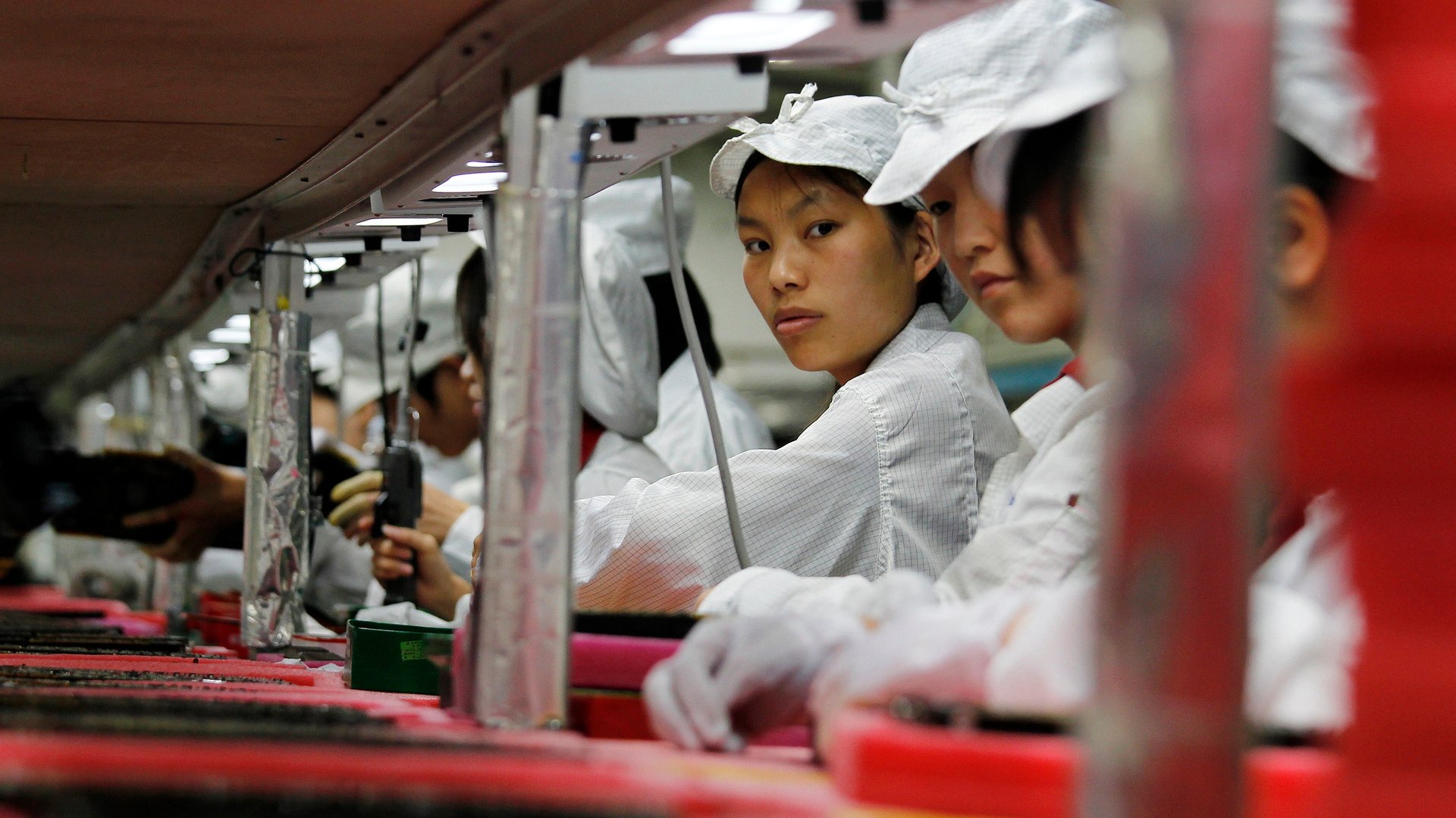An iPhone 7 factory worker thinks if Apple manufacturing jobs came to the US, they’d be taken by robots
It’s now a little clearer what working in an iPhone assembly plant is like. Business Insider spoke at length with Dejian Zeng, a New York University grad student who decided to spend his summer working at a factory near Shanghai for a summer project as part of a Global Human Rights fellowship. The factory was owned by Pegatron, one of the companies Apple uses to assemble its products. Zeng told Business Insider about the rough hours, the exceedingly low pay (he received around $450 a month), and having to share a room with six other workers in Pegatron’s complex. A large portion of Zeng’s summer was spent screwing exactly one screw into iPhone casings, over and over, for about 12 hours a day.


It’s now a little clearer what working in an iPhone assembly plant is like. Business Insider spoke at length with Dejian Zeng, a New York University grad student who decided to spend his summer working at a factory near Shanghai for a summer project as part of a Global Human Rights fellowship. The factory was owned by Pegatron, one of the companies Apple uses to assemble its products. Zeng told Business Insider about the rough hours, the exceedingly low pay (he received around $450 a month), and having to share a room with six other workers in Pegatron’s complex. A large portion of Zeng’s summer was spent screwing exactly one screw into iPhone casings, over and over, for about 12 hours a day.
Zeng’s interview in its entirety is definitely worth a read for a deep look on how the workers that assemble the phones on which many of you are reading this story. But one insight near the end will likely be of interest to Donald Trump, who made bringing jobs just like these back from China and other developing nations a core piece of his presidential campaign platform, and has publicly pressured Apple CEO Tim Cook to assemble the iPhone in the US. When asked whether this sort of work could be done in the US, Zeng told Business Insider:
From the labor perspective I don’t think it’s very realistic for bringing labor intensive manufacturers into the US. Why I’m saying that? Just think about wages. Chinese people are getting 2320 yuan which is about $400 per month.
How much are you going to pay for the US workers in terms of base salary?
If it really happened, if factories actually really moved to the US, I won’t see it create lot of jobs. I would see workers getting replaced by a lot of machines, because a lot of the work I see in the factory can actually be done by machine.
The only reason why we do it [manufacture in China] is because the labor is even cheaper than the machine.
As far as Zeng sees it, labor is too expensive to realistically build the iPhone in the US (although others would argue that labor costs aren’t what would make a US-assembled iPhone expensive—it’s the cost of shipping all the component parts from China, where they are made, to the US). If Apple elected to build the iPhone in the US as Trump would like, the process would almost surely be automated, since robots would be cheaper than US workers. After all, many of the processes for building an iPhone are as menial as screwing something in, or attaching something to something else, according to Zeng.
Another Apple assembly company, Foxconn, has already replaced an entire 60,000-worker factory with robots, and Apple already assembles some of its computers in the US, with robots doing tasks like polishing, anodizing, and inserting electronic components onto circuit boards. (Apple also uses robots to disassemble its iPhones for recycling). So it’s entirely possible that in the future, you’ll be able to buy a US-made iPhone—just don’t expect it to have created many jobs for US humans.